How Much Does It REALLY Cost To Run A Marathon?
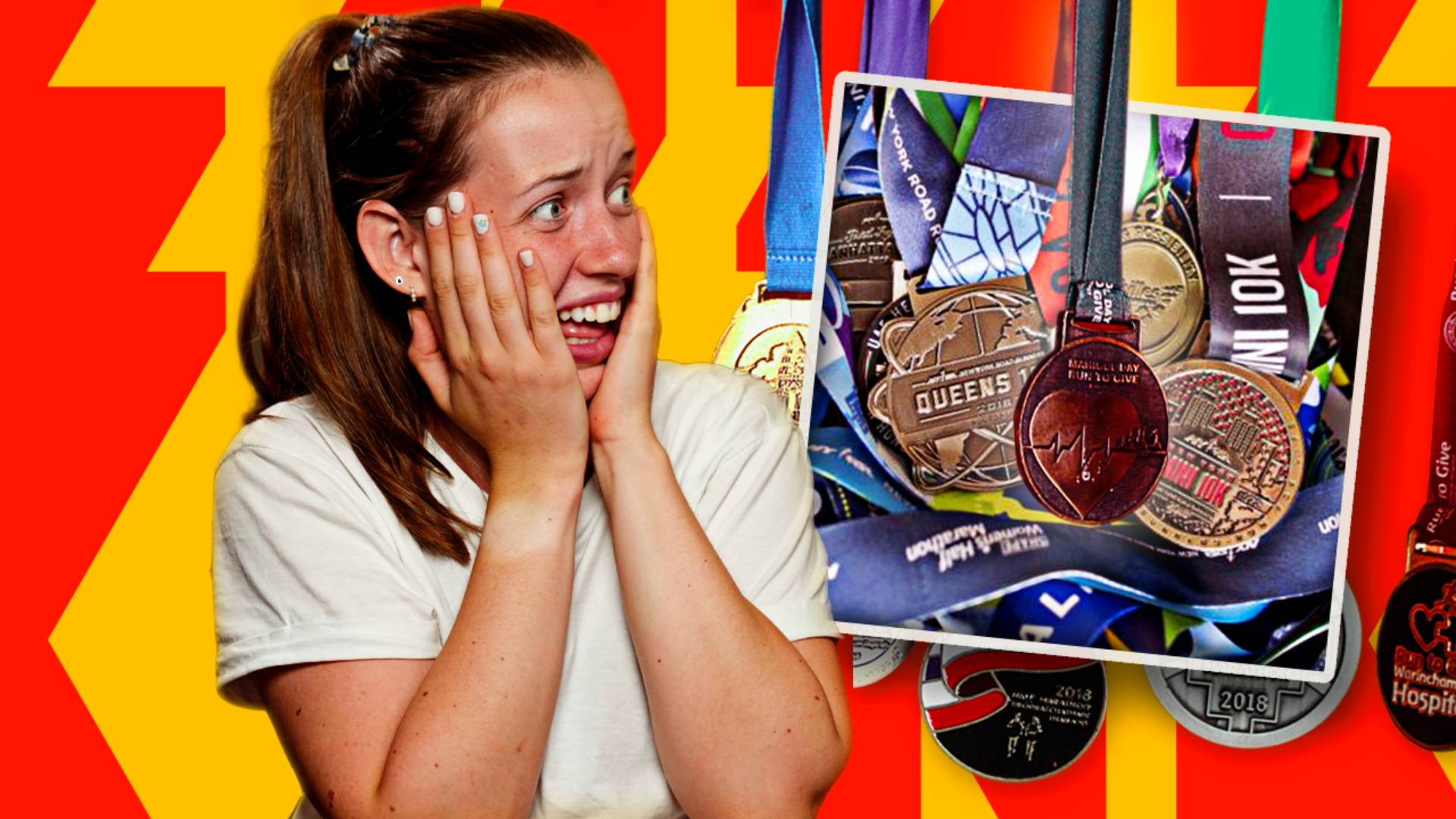
Running is a cheap way to exercise, they say. All you need is a pair of shoes and you’re set, they say.
But any runner who has ended up buying a second (or third) pair of shoes, some technical running gear, a nice running watch, and entered a race will know that this ‘cheap’ hobby can get pretty expensive.
But just how expensive is it to run a marathon? When you consider all the equipment, the nutrition, the race and travel, what does it really cost to run a marathon?
At the end I’ve included exactly what my current marathon is going to cost me.
IS RUNNING A MARATHON EXPENSIVE?
Taking on races is something that many runners love to do, and races are marked on calendars months in advance. For many of us, it’s the way we like to spend our spare time and our spare money, and we look forward to the travel experience as much as the race itself.
The most expensive things may seem obvious when it comes to running a marathon, like travel and running shoes, but there are also other items which are important to your training, like nutrition, and the cost of this can add up into a significant number, as we’ll see.
HOW MUCH DOES IT REALLY COST TO RUN A MARATHON?
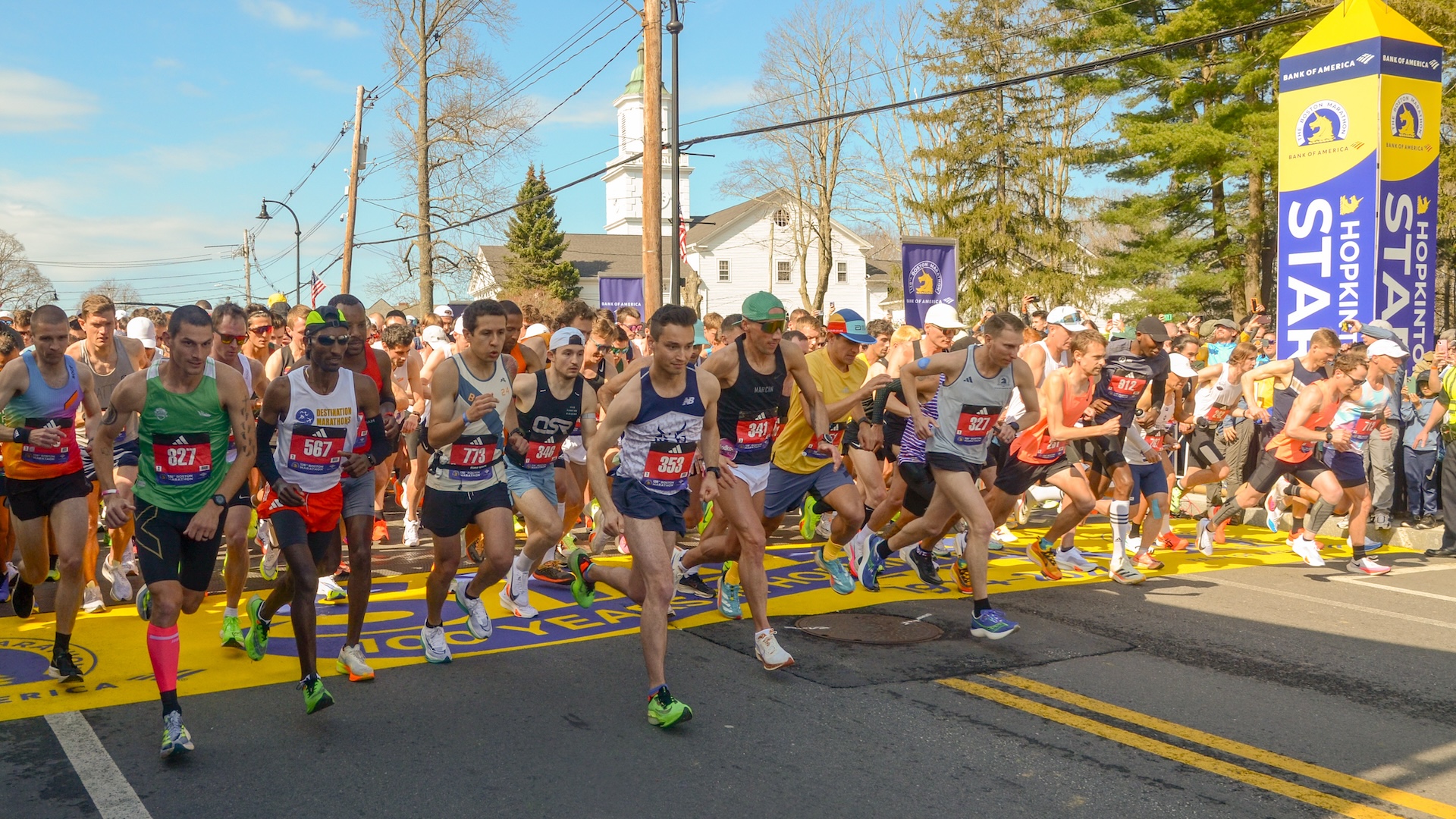
We’ve used a universal $ sign below, but amounts should be considered as a midpoint between GBP, USD and EUR. While that’s not exact, it’s a good representative number for you to compare to your own currency. This accounts for a 16-week training programme as that’s how long it takes to train for a marathon.
RACE ENTRY
Races are getting more expensive. The US Marathon Majors are around $250 to enter, and plenty of other races are over $200. Smaller local races can be cheaper options for runners, though they don’t come with the prestige or atmosphere of a big city marathon (which some runners prefer).
- Budget: Under $75
- Average: $75-150
- Expensive: $150+
TRAVEL, HOTEL & FOOD (AND MERCH)
Travel and hotels will likely be the biggest expense if you’re doing a marathon, unless the race is in your hometown. Costs will vary greatly, of course. Run your local race and you won’t spend anything. While we all have an amount we’re comfortable spending on a hotel (that might be $100 a night, or it might be $500).
During big city races, hotels can sell out quickly and can be more expensive than usual. Expect to spend at least $200-300 per night, and more if you want to be near the start line. Flights (or other travel like trains or car fuel) will vary depending on how far you’re going, so it’s impossible to estimate an amount for that.
You’ll need food when travelling and you could prepare your own food to keep costs lower, or you might want to go and celebrate with nice food and drink afterwards.
And then there’s buying stuff at the expo. Some people are happy to skip this, while others leave head-to-toe in race merch, especially at the Marathon Majors.
- Hometown: $0-50
- Budget: Under $300
- Average: $300-800
- Expensive: $800-2,000+
TRAINING KIT & SHOES
You may have everything you need already, but you may be the kind of runner who signs up for a race and then goes straight out to buy new shoes to train in and new tops to wear. You may also want some accessories like a belt or pack to carry race nutrition, water bottles or soft flasks, a head torch for winter runs. Of course, some brands are also more expensive than others, so you’ll shop within your own budget.
- Budget: Under $100
- Average: $100-200
- Expensive: $200+
RACING KIT & SHOES
Compared to training kit, race kit can be more expensive. Carbon plate running shoes often cost $200 a pair (though they probably only benefit faster runners), and race-specific kit can have a premium price tag.
- Budget: Under $100
- Average: $100-250
- Expensive: $250+
NUTRITION
While travel and trainers are obviously high costs, nutrition might be something that actually ends up being one of the more expensive aspects of marathoning, because to perform well, you need to eat well.
It’s important to fuel your training runs and your race. For hard workouts and long runs, you want to take gels and other race nutrition – most gels cost around $2 each, and you may need more than 50 gels during your training block. You might want electrolytes, different supplements and vitamins (like these legal performance enhancers), plus you’re going to be more hungry, so you need more food in your weekly shop.
- Budget: Under $200
- Average: $200-300
- Expensive: $300+
RUNNING TECH & EQUIPMENT
This one could be zero or it could be hundreds. You may have a watch and heart rate monitor and anything else you might need, so won’t spend anything. But you might want to invest in new tech for your training: a running watch can cost from $100 to over $1000; heart rate monitors are $100; good headphones are $100-150; there’s compression boots, foot stride pods, running sunglasses, and more. You don’t need any of this, but some runners want these things.
GYM, PHYSIO, MASSAGE, COACHING, ETC
This one covers a lot of possibilities, and while you may consider some to be essential, others will not be in your plans, so you may spend nothing on this stuff, but you may spend lots.
You might be a runner who likes a regular massage or sauna, or you may require a couple of visits to the physio (or may buy a massage gun). You may pay for a coach or coaching app. You might buy a gym membership or your own strength equipment if you don’t already have them.
- Budget: Under $100
- Average: $100-300
- Expensive: $300+
MISCELLANEOUS
And then there’s all the other stuff. That could be blister plasters, KT tape, freeze spray, nipple plasters, anti-chafe, special pins for your race bib… You may spend nothing on this, or you may spend hundreds.
HOW MUCH DOES IT COST TO RUN A TRAIL MARATHON OR ULTRAMARATHON?
The cost of running a trail marathon or ultramarathon will likely be similar to running a road marathon, but you may require more equipment (here’s what to carry on a trail run).
You might need a running pack, a jacket or other adverse/cold weather gear, poles, a watch with good mapping technology, more nutrition (in the race and during training), trail running shoes, and more.
A SPECIFIC EXAMPLE OF HOW MUCH IT COSTS TO RUN A MARATHON
Writing this made me wonder exactly how much my current marathon will cost me. So instead of a hypothetical cost, here’s what I’m actually spending.
Some details: I’m running a big city European marathon where I’ll travel for two nights. I use a lot of gels in training, but I make my own energy drink to save money. I’m not planning on buying any new kit but I have bought new race shoes and socks. I’ve allowed for physio and massage but may not need them (or may need more than budgeted for).
| ITEM | COST |
| RACE ENTRY | 100 |
| TRAVEL, HOTEL & FOOD | 600 |
| TRAINING KIT & SHOES | 0 |
| RACING KIT & SHOES | 300 |
| PHYSIO, MASSAGE, ETC | 250 |
| NUTRITION | 400 |
| TECH | 0 |
| MISC | 50 |
| TOTAL | 1700 |
As a comparison, I ran the Boston Marathon in 2024 and the total cost was more than £3,000. That included a five-night trip (in the cheapest accommodation I could find), training and race shoes, and lots of money spent in Boston at the expo and on food and drink around the race.
But running a marathon doesn’t have to be expensive.
HOW TO SAVE MONEY WHEN RUNNING A MARATHON
First of all, you don’t have to run marathons or other races. That’s just something that some runners like to aim for.
To save money when running a marathon, consider these tips:
- Run small and/or local races. Entry fees are often cheaper, plus you’ll save on travel and hotel costs, which are often the biggest expense of a marathon.
- Make your own running nutrition instead of expensive gels and drink mix.
- Buy running shoes in the sale, and get more miles out of them. Most shoes can last for 300 miles (500km) or more, and a pair of supershoes should be able to get through at least four marathons (as long as they still feel good for you).
- Look for second-hand tech if you want a new watch or other equipment
- Volunteer at races and you’ll often get a free or discounted place for a future race, saving race entry.
***
Thinking about running your own marathon? Here’s a complete guide to marathon training.
Here’s a video of Sarah running the London Marathon. Some people say you can’t put a price on experiences like that, but actually you can, and it’s about two grand!




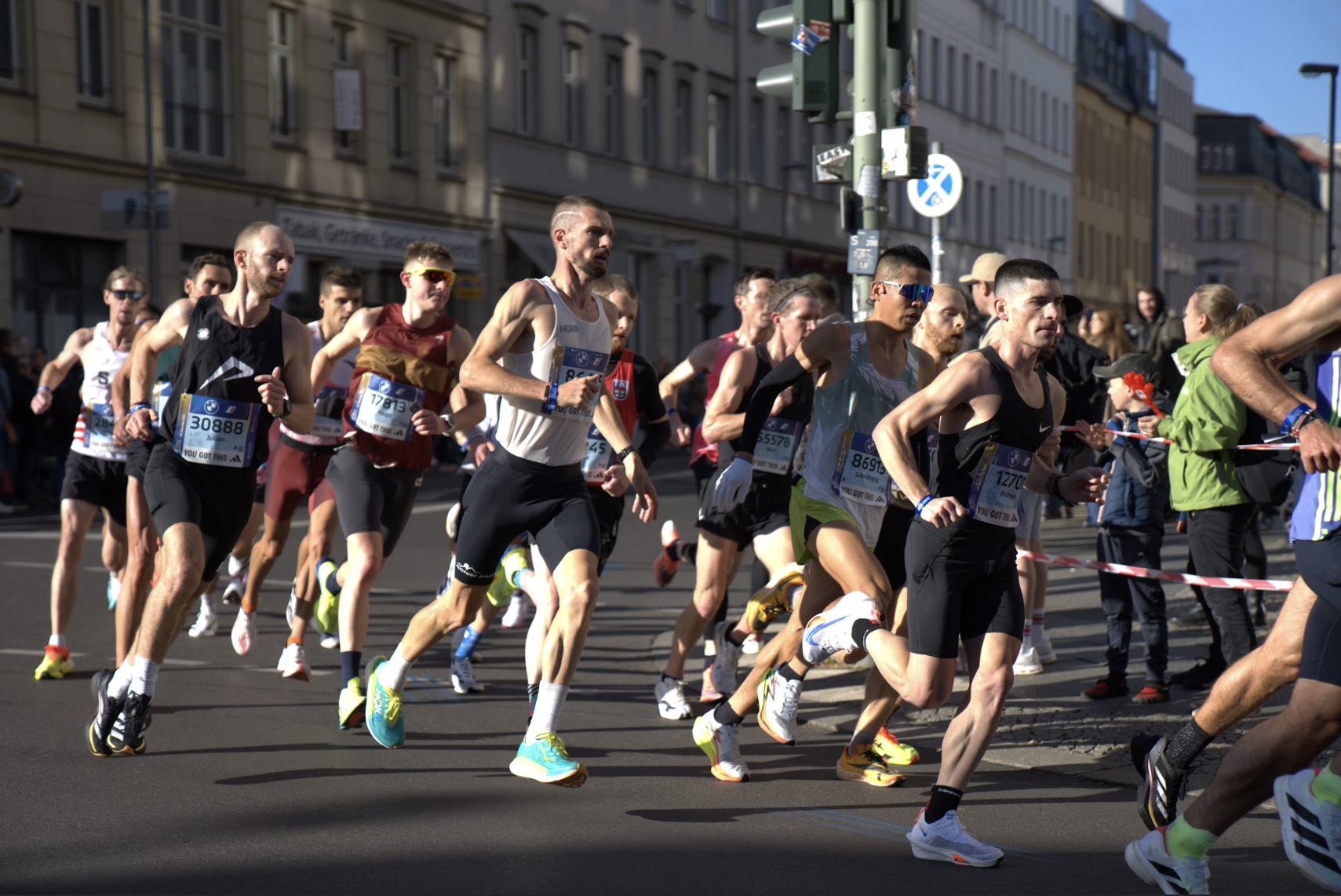
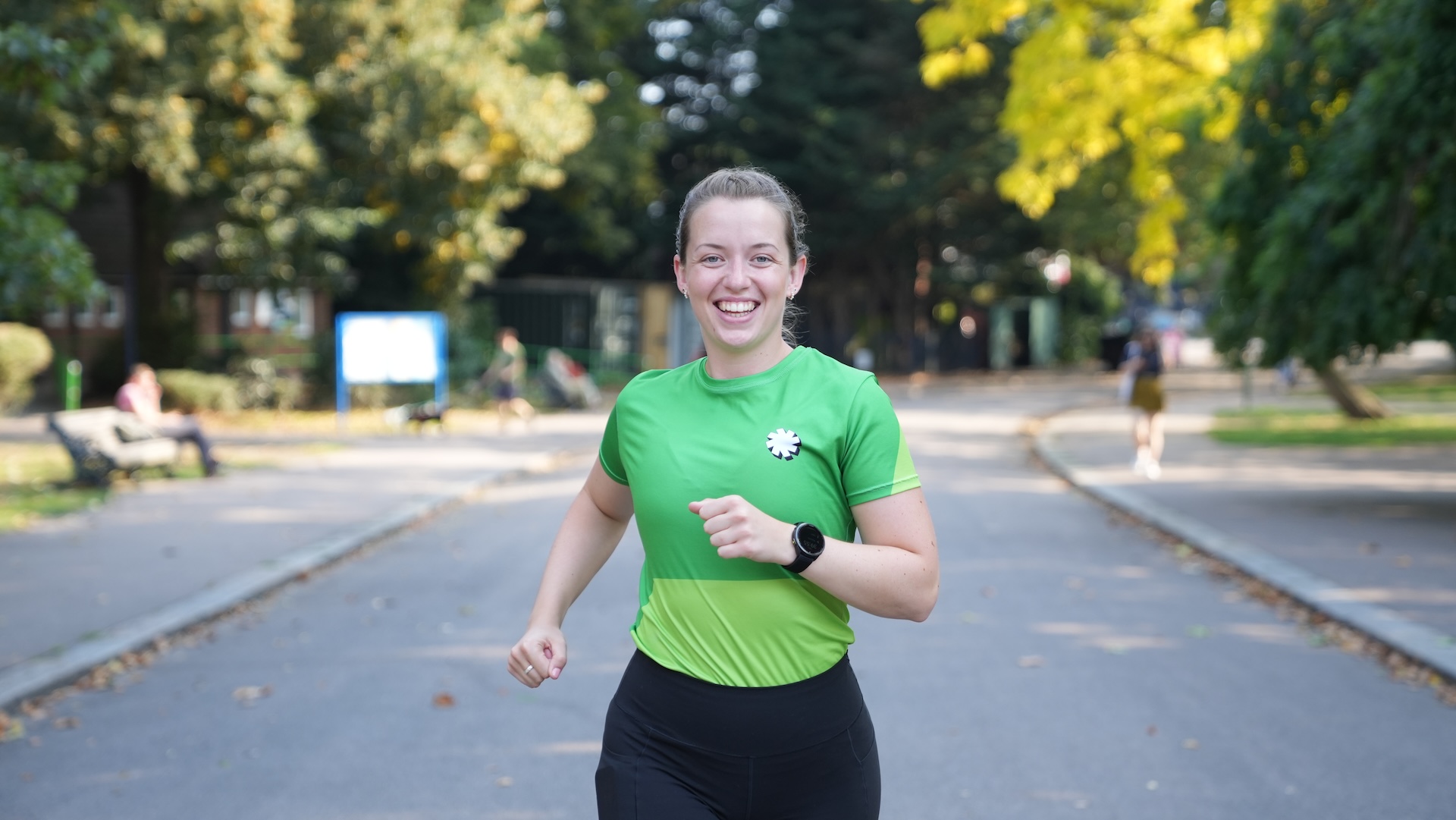
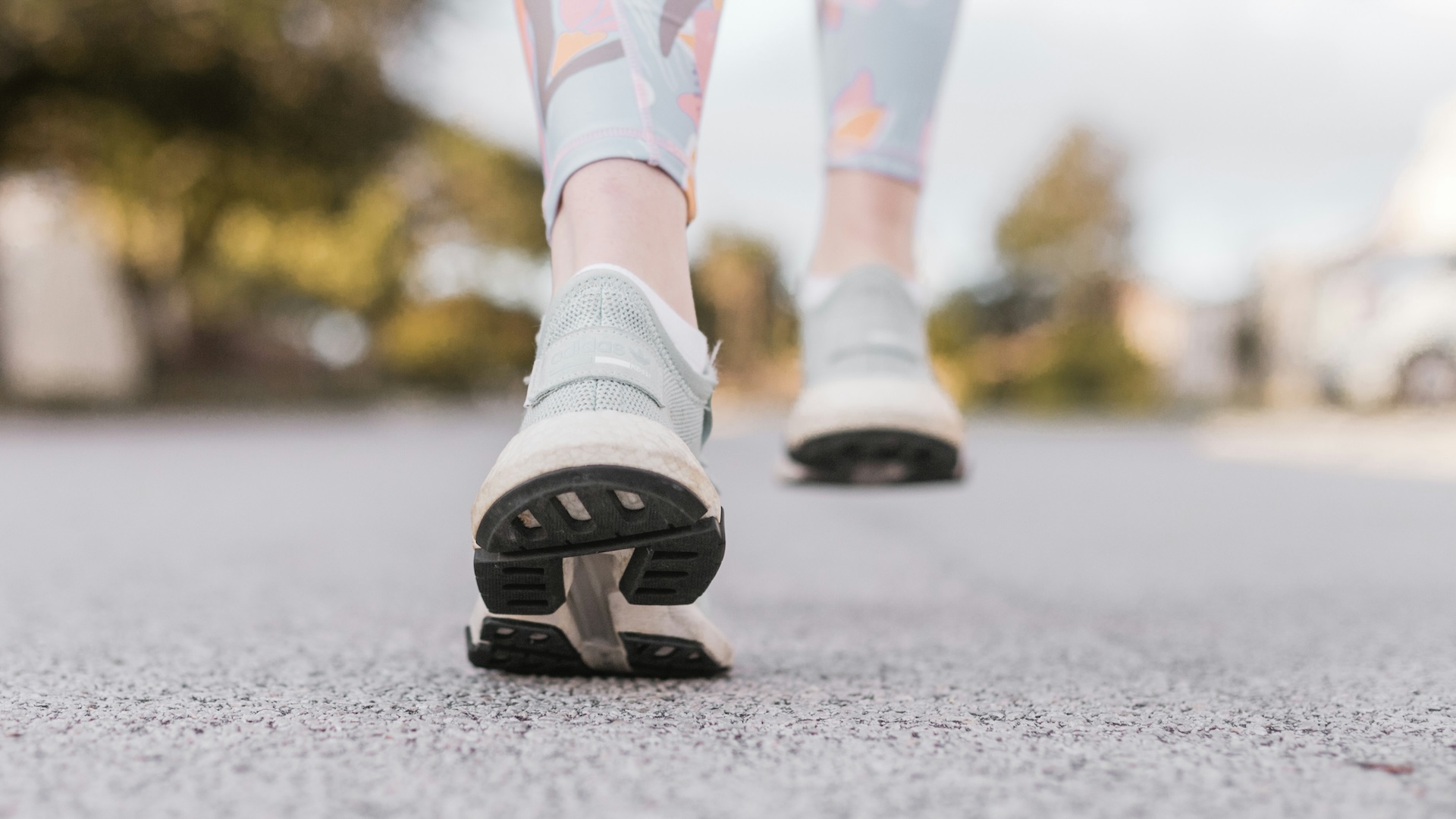




















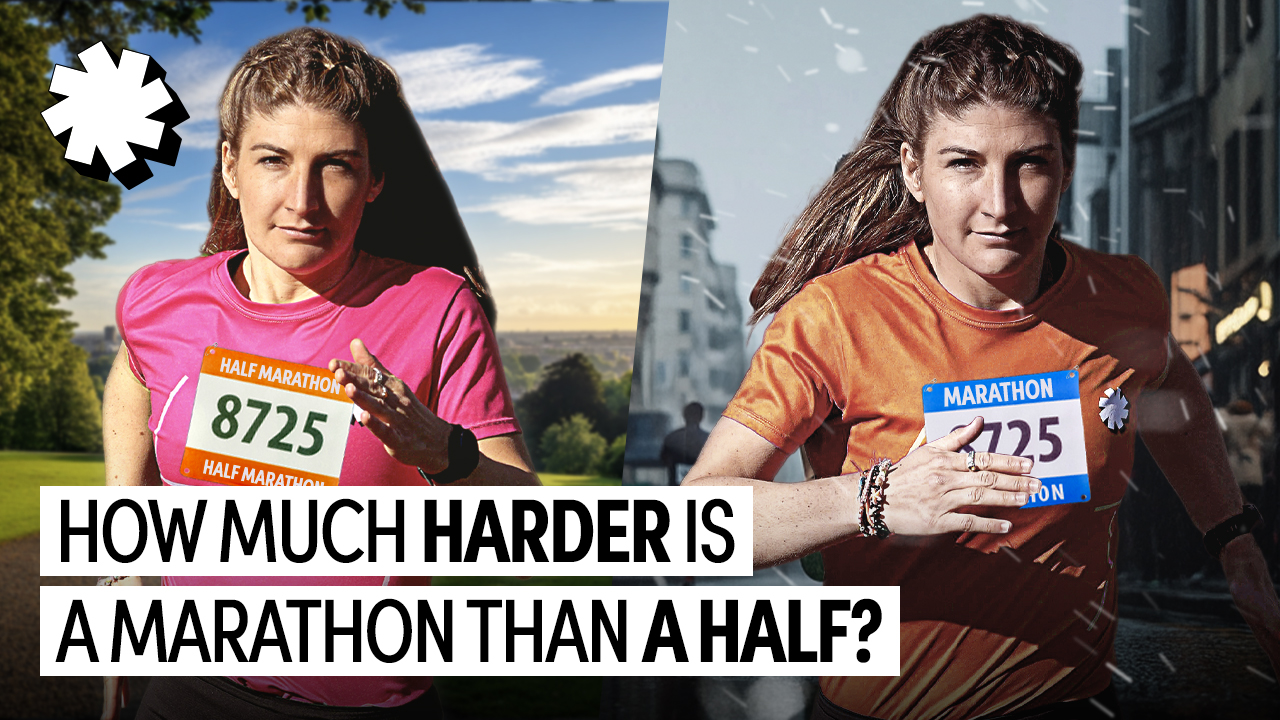

Running News
Ingebrigtsen Stars at World Athletics Indoor Championships 2025 – Plus All The Winners!
Sam Ruthe Is First 15-Year-Old To Run A Four-Minute Mile!
Eliud Kipchoge Will Run The 2025 Sydney Marathon!